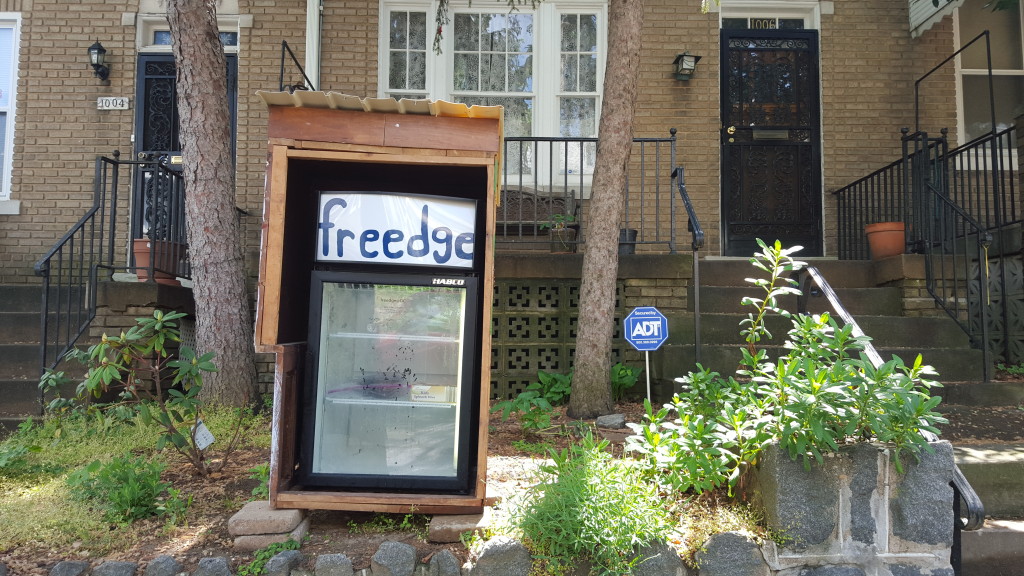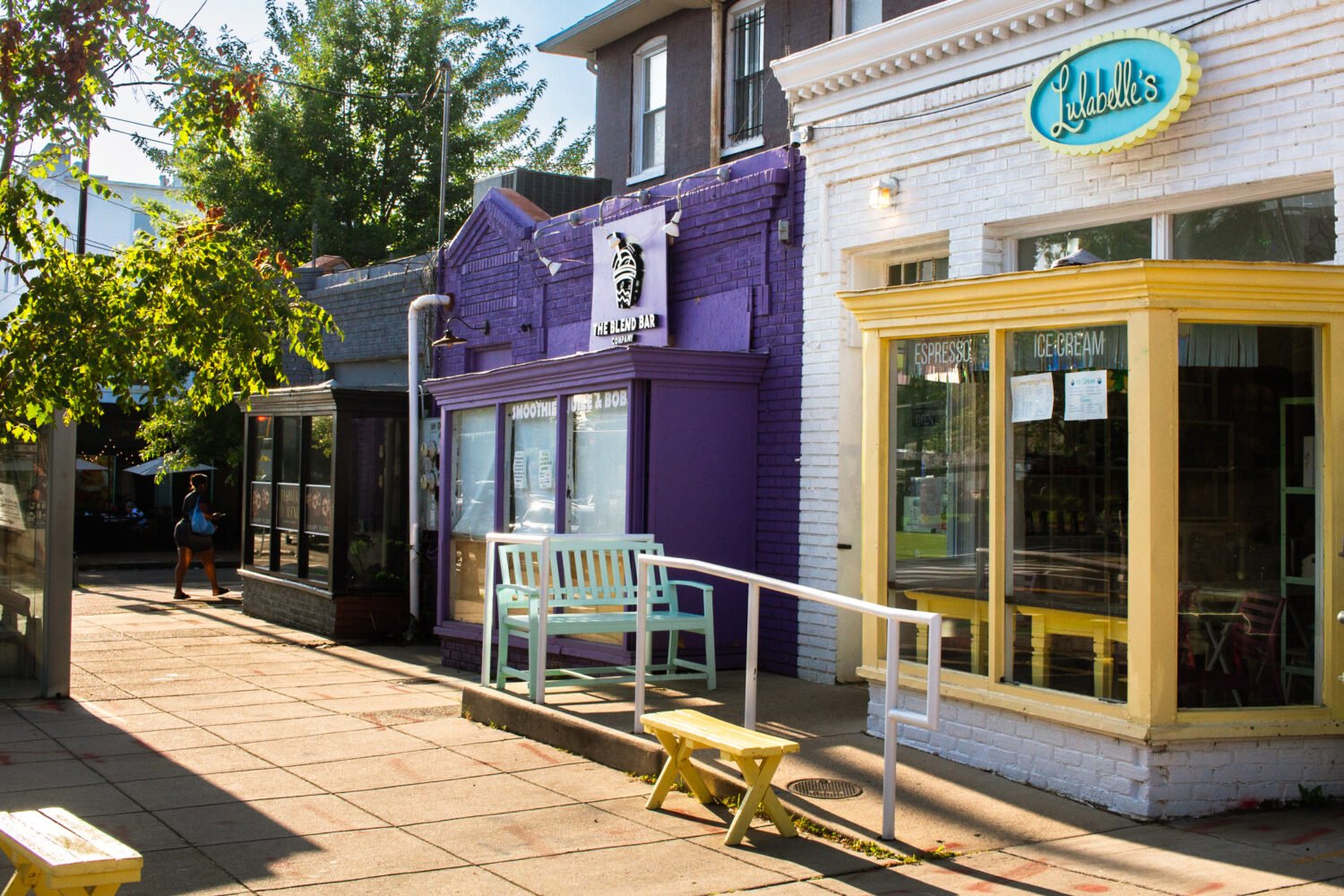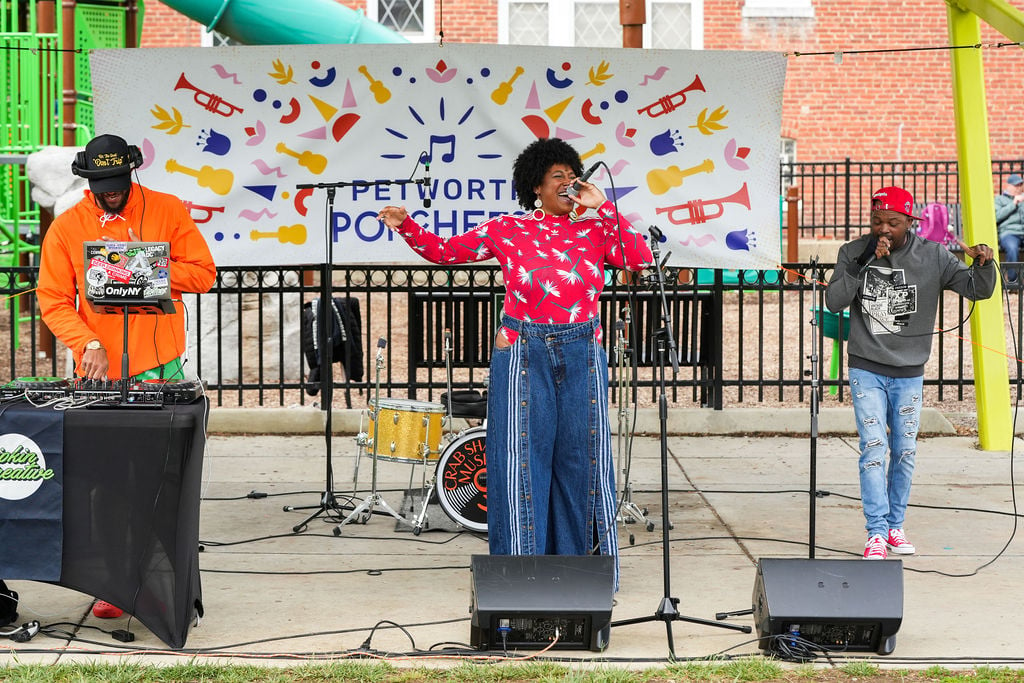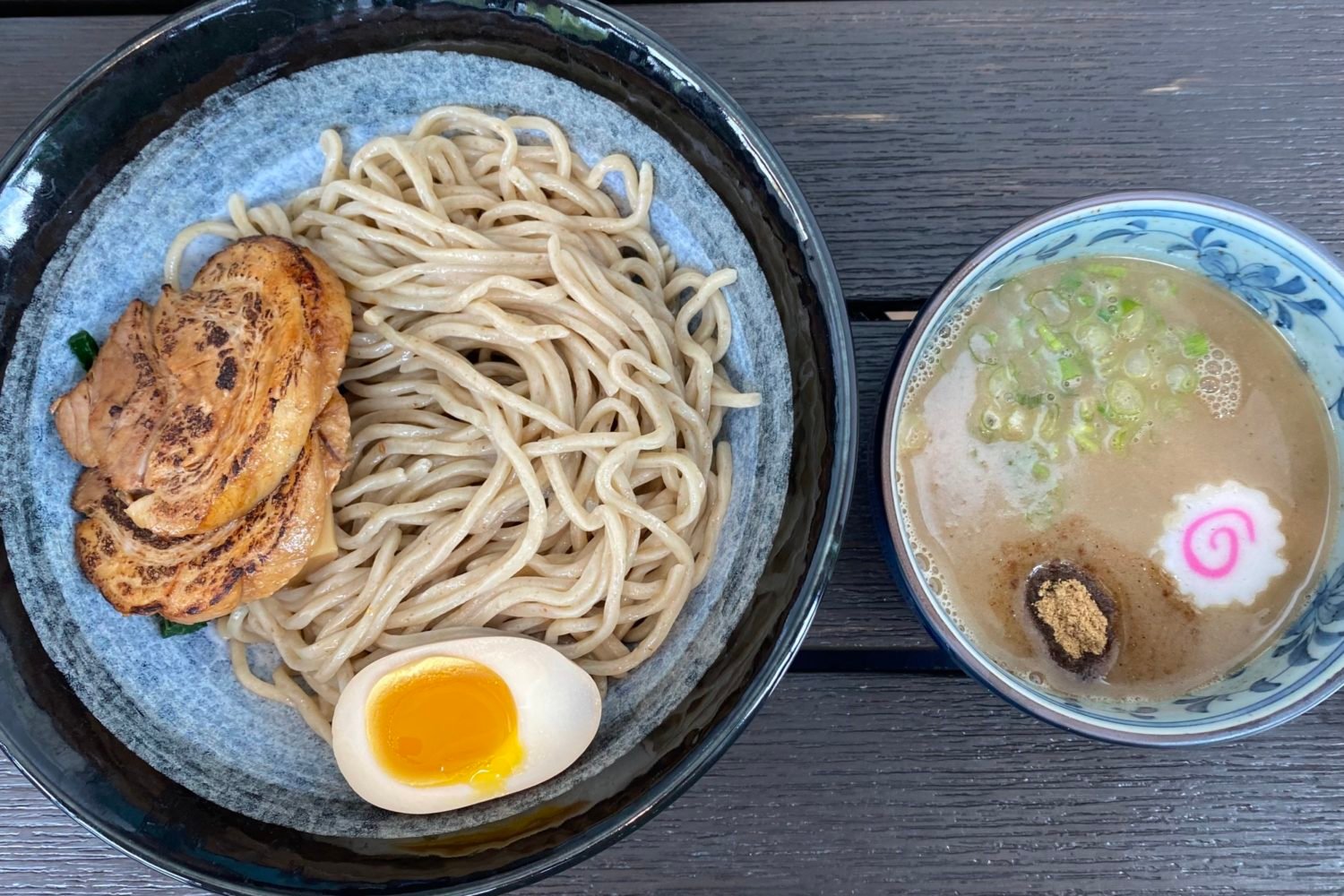Since April, an extension cord plugged into Eric Yen‘s basement has kept an industrial fridge from an antique shop in Maryland running outside of his Petworth rowhouse. Yen first added onions and bread, food he wasn’t going to use, to kick off DC’s first installation of the “freedge,” a community refrigerator.
“You buy vegetables or anything else and three weeks later you go back and realize, ‘I didn’t eat this; I have to toss it.’ It’s very wasteful and disappointing,” explains Yen. “So much food in the US, Europe and other countries goes to waste at the household level.”
Yen, who moved from California to DC in September to work for the International Food Policy Research Institute, hopes that the freedge will be an avenue for neighbors to become aware of food waste and reduce it. Neighbors can leave any surplus of food–leftovers, canned goods, produce, etc–in the community fridge with the exception of raw meat and alcohol.
The first community “freedge” started a year and a half ago and is housed in Davis, California, where Yen and “freedge” co-founder Ernst Bertome have made partnerships with vendors at local farmers markets to leave any unsold produce in the fridge. With freedge locations now extending into Romania and Brazil, Yen has high hopes for DC’s “freedge”. He says that at its preliminary stages, however, the DC freedge has seen low usage. He calculates that it sees around one to two items a day going in an out–and sometimes on the sidewalks.
“Somedays we’ll have nothing. But I’ve seen goat curry, fresh naan, cookies, bread, Oreos,” he recalled. “We hope more people use it, but it takes a little time for people to get used to the idea–to put food in there and take some too,” says Yen.
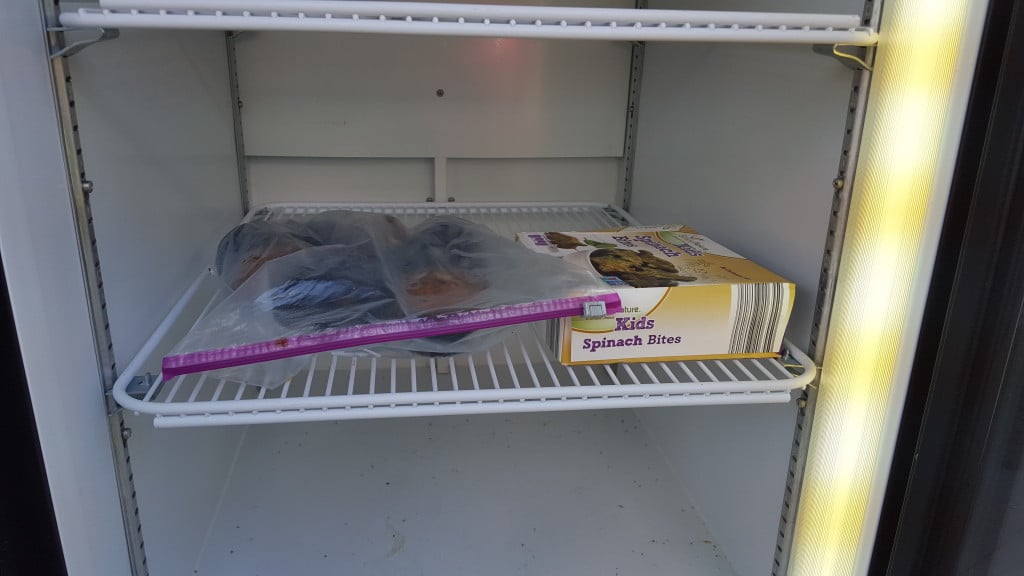
He checks up on the refrigerator twice a day to make sure that nothing has spoiled. He says he does as much as he can to prevent people from getting sick, but an act signed by Bill Clinton in the ’90s protects him, and food donation non-profits alike, from liability. So far, no one has gotten sick from “freedge” food in any locations, says Yen.
Worst case scenario, it seems, someone tries to steal the fridge.
Yen came home home one day to see a dolly in front of the refrigerator. “A neighbor saw the word ‘freedge’ and thought it said ‘free fridge’. It was just a misunderstanding.”

